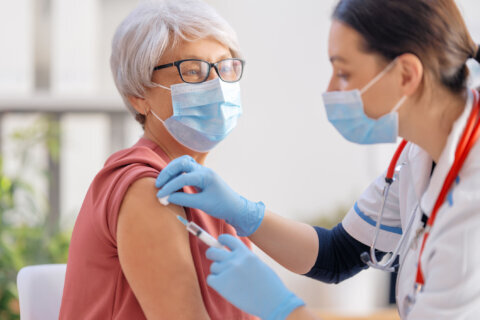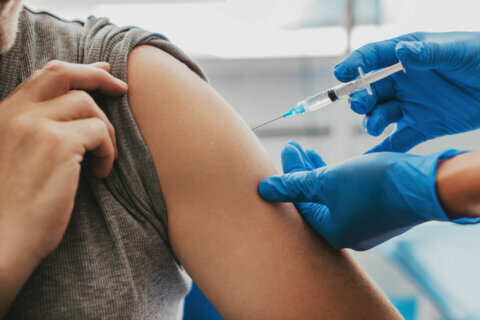This content is written by Dr. Robert Sadowski, pediatric specialist and medical director, CareFirst BlueCross BlueShield.
If a parent comes into my office asking questions about whether or not they should get the COVID-19 vaccine for their 12-18-year-old or 5-11-year-old, it’s an excellent sign because it is good to have questions. We need to be careful about the information we read online because not all information on the Internet comes from reliable sources, which poses two questions:
- Where can I find reliably sourced information about the vaccine? It’s important to gather information from knowledgeable sources such as your pediatrician or family doctor, the Centers for Disease Control and Prevention (CDC) or peer-reviewed and published scientific journals backed by research citations.
- Where should you not seek medical advice? Social media. If you are getting your medical information from your social feeds, you are likely getting unreliable information. While social media is a great place to check in with friends, it is not a source of accurate scientific facts.
Are vaccines safe for use in kids ages 12 and older? The Pfizer vaccine is FDA-approved, CDC-recommended and available for kids ages 12 and older. The Moderna vaccine is still only available for those 18 and older. Soon, we may have two vaccines available for kids who are 12-17 years old.
Are vaccines safe for use in kids ages 5-11 years old? The Pfizer vaccine is FDA-approved, CDC-recommended as of November 3, 2021. Pfizer released details of a trial showing its vaccine is safe and generated robust antibody response in kids 5-11. The difference in the vaccine is the dosage amounts (a 10-microgram dose for ages 5-11 vs. a 30-microgram dose for those 12 and older). Again, according to FDA/CDC, any risks or unknowns posed by this younger population not getting the vaccine far outweigh the risks associated with them getting the vaccine.
Why does the CDC recommend getting the vaccine if there are risks involved?
The data shows the vaccine is safe; therefore, the risks of not getting the vaccine far outweigh the risks associated with getting the vaccine. Transparency about what we do and don’t know is critical; however, transparency can be a double-edged sword.
For example, the CDC has been transparent about rare instances in which, after the second dose of the vaccine, a limited number of teenage or adult males experienced side effects, including myocarditis (inflammation of the heart muscle) or pericarditis (inflammation of the lining surrounding the heart). In most cases, patients who presented for medical care had a very mild illness, responded well to medications and rest, and experienced immediate improvements to their symptoms following treatment.
The CDC is transparent about these rare cases because they want the public to be aware, and they want doctors to report this information to the CDC as rapidly as possible. Science relies on facts, data, and collecting accurate information: not anecdotes. The more data we have, the better the data becomes, and the safer we will all be.
Although children, compared to adults, are at lower risk of becoming severely ill with COVID-19, the COVID-19 virus can trigger a reaction called Multisystem Inflammatory Syndrome, which can require intensive care hospitalization in children and teens. Over 8,000 children have been hospitalized with severe COVID-19 cases, and 5,000 of those developed multisystem inflammatory syndrome. Unfortunately, more than 100 children have died.
Are there any best practices parents should have their children follow, regardless of whether they have received the vaccine?
Due to the pandemic, many doctors’ appointments and check-ups have been missed. As we are in the midst of flu season, it’s important to get caught up with flu shots and other vaccines. Additionally, we can follow guidance from the CDC about extracurricular activities. They’re generally saying that when you’re outside playing, the masks are not required. But inside, masks are still recommended.
Medical professionals are preparing for another rough winter and experiencing the fallout from misinformation about COVID-19 and unprecedented levels of burnout and stress from treating this disease. It’s critical that we do not become complacent. The rate of vaccinations is slowing, there are areas of the country where vaccinations are very low, and our families and frontline workers deserve better.
I will end on the same sentiment I started with if you were my patient and asked if you or your eligible child should get vaccinated, I would most likely answer “absolutely, yes.” The answer for almost everyone is the benefits outweigh the very small risks. It’s best for as many people as possible to receive the vaccination. In every child’s case, it is important to check with your pediatrician, family practitioner or other clinicians for the best advice about decisions regarding individual health needs.






